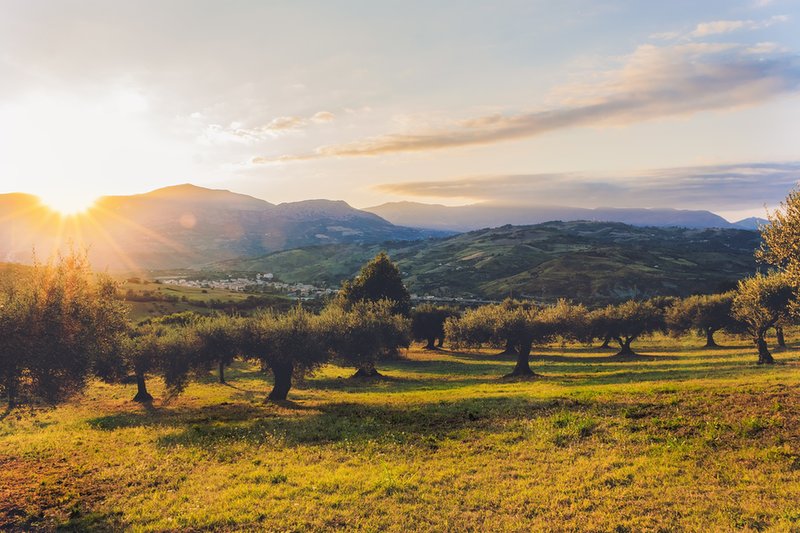Article
IoT on a typical Mediterranean rural farm
Euronews visits Greek ‘Automated Olive Chain’ use case test farm

On Thursday the 5th of December a Euronews camera crew traveled deep into the Greek region of Messinia. They came to see the olive farmers of the Nileas group in the small town Chora. These olive farmers play an important role in the IoF2020 ‘Automated Olive Chain’ use case (UC3.3), providing a test farm for real-life testing of technological advances in common Mediterranean rural farming conditions.
Messinia’s olive farms might not be what you first expect when thinking of cutting edge IoT research and development. People have been farming in this region for many hundreds of years, primarily using traditional techniques that are being handed down from one generation to the next. In fact, many of the olive trees in this region are over 1.000 years old. At the same time, modern times are never far away. Chora is situated less than 10km to the west of Costa Navarino, a luxury holiday destination and home to one of the largest and most modern holiday resorts in Greece.
"Messinia’s olive farms might not be what you first expect when thinking of cutting edge IoT research and development."
The contrast between modern mass-tourism and traditional farming in Messinia is striking. However, through IoF2020, the farmers of Chora have shown that they too can use modern technology to their advantage. Over the past few years they have implemented several IoT solutions, which have helped them improve their crop management decision-making. Furthermore, IoT solutions enabled them to predict pests and diseases more timely, and have increased their understanding of the impact of various processing parameters such as milling temperature on the quality of their olive oil.
The involvement of the Nileas group in IoF2020 is a win-win situation for farmers and researchers alike. Georgios Kokkinos, one of the farmers involved, explains: “We gain valuable knowledge regarding new technologies that we use to improve the decision-making in our own olive production, and that we can share with other farmers in our region. What we offer IoF2020’s technology providers and researchers is the ability to test smart farming technologies on a typical Mediterranean olive orchard that is cultivated using common farming practices under real conditions. Moreover, we provide direct market feedback on the usability of the solutions that we test.”
"We gain valuable knowledge regarding new technologies that we use to improve the decision-making in our own olive production, and that we can share with other farmers in our region."
Photo-reportage
During Euronews’s visit the proud researchers and farmers of the Automated Olive Chain use case jointly presented what they have accomplished so far.
Antonis Paraskevopoulos, local director of Agroeconomy and Veterinary services, discusses the importance of projects like IoF2020 for the olive sector of the region.
Euronews crew filming the farm workers harvesting olives.
Evangelos Anastasiou from the Agricultural University of Athens discusses the use of drones and soil electrical conductivity sensors on assess crop vigour and soil characteristics for site specific management in olive orchards.
Representatives from the Agricultural University of Athens demonstrate the use of drones for assess crop vigour in olive tree plantations.
Kostas Pramataris of SYNELIXIS, a partner in the Automated Olive Chain use case, explains the importance of IoT Technologies for automating irrigation operations in olive orchards.
Farmer Giorgos Kokkinos from the Nileas farmers group discusses how IoT technologies and smart farming have helped the olive farmers to increase their production in a sustainable way.
Curious about the final report?
The report is made for Euronews Futuris, a program focusing on leading scientific and technological research projects in Europe. The item on IoF2020 will be aired in late January, and will also be made available through the Euronews Futuris webpage.